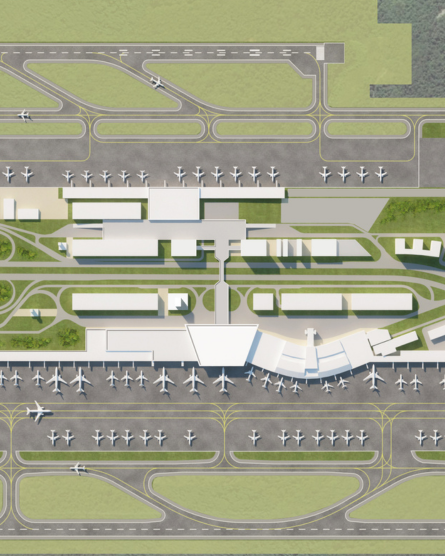Sometimes people ask me “how do you become an airport planner?” The great thing about this profession is that there are many different paths. But for me, the real question is: how do you become a good airport planner?
I studied architecture and worked as a traditional architect before moving into airport planning. I worked on large and complex projects, from competition design to construction site, which I still see as a great foundation.
After almost 20 years in this exciting field, here are my 5 key tips for becoming a good airport planner:
𝟭. 𝗕𝗲 𝗖𝘂𝗿𝗶𝗼𝘂𝘀
Watch airport buildings and operations whenever you can. Travel, take photos, make notes. Do research – not only on airports but also on other industries. You might find methods that can be applied to airports. The best insights often come when we observe without judging, especially in other cultures.
𝟮. 𝗔𝘀𝗸 𝗤𝘂𝗲𝘀𝘁𝗶𝗼𝗻𝘀
Ask how things can be improved. What could this look like in 20 years? Could something from another industry work at an airport? Speak to people in airport planning – ask lots of “why” and “how” questions. For example, ask operation staff why they to something specifically the way they do it and how they would do it if they could freely create their own solution.
𝟯. 𝗖𝗿𝗲𝗮𝘁𝗲 𝗦𝗼𝗹𝘂𝘁𝗶𝗼𝗻𝘀
Focus on finding solutions and thinking in alternatives. In airport planning, the best technical solution is often clear – but not easy to implement due to cost, space, or regulations. Finding the right compromise is a key skill. And remember: big improvements often start with ideas that first seem impossible.
𝟰. 𝗧𝗵𝗶𝗻𝗸 𝗕𝗮𝗹𝗮𝗻𝗰𝗲𝗱
Airports are complex systems, like cities. Improving just one part doesn’t always lead to a better overall result – especially in the long term. Keep the whole picture in mind. Ask yourself „how would I decide if I am the CEO of this airport and need to balance quality, cost and schedule, as well as short and long term goals.
𝟱. 𝗘𝘅𝗽𝗹𝗮𝗶𝗻 𝗖𝗹𝗲𝗮𝗿𝗹𝘆
For me this is one of the most underrated skills in complex projects: the ability to explain things clearly and yet interesting and in a way that non-experts can follow. It’s like oil in the machine – it helps everything run more smoothly. Without this, all your hard work as a planner might be useless because it doesn’t make it through the steering committee meeting.
And finally… all the good airport planners I’ve met share one thing: real passion!
For airports, for planning, for other people and for discovering new places and cultures.


